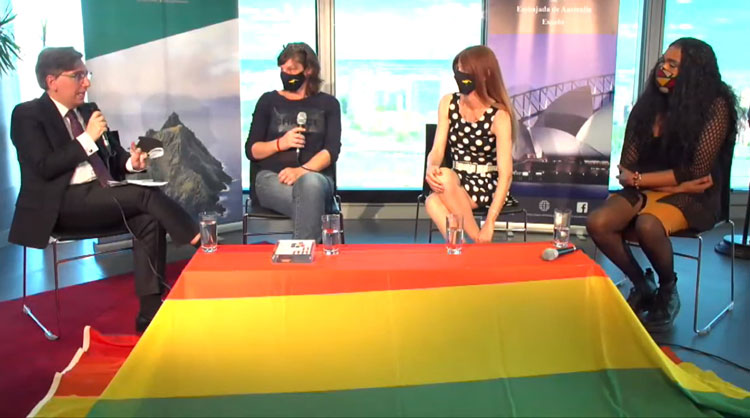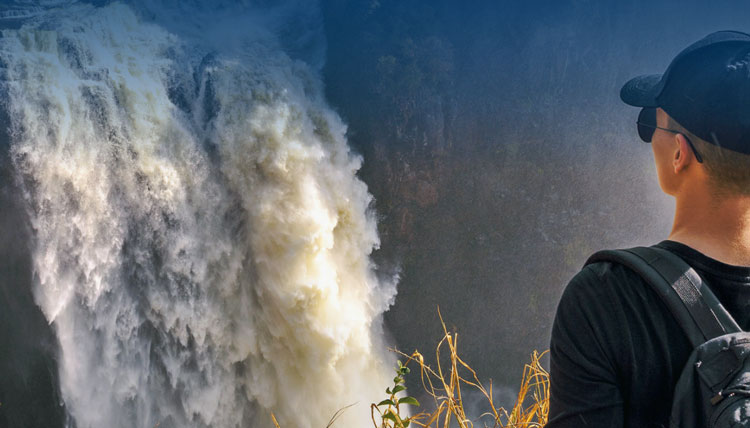Text and photos: Juan David Latorre.
As part of the celebration of LGBT Pride Day 2021, the Embassy of Australia and the Embassy of Ireland in Madrid held last Thursday the virtual event Pride is not quarantined.
The Irish ambassador, Sile McGuire, introduced the event noting her “pride” in belonging to a country, Ireland, which approved gay marriage by referendum by a large majority back in 2015. “So many people from all corners of Ireland, in the months leading up to the approval, came forward with their stories in relation to the LGBT world. It was incredibly powerful. The majority of Irish society showed the gay population their support overwhelmingly.” “The passing of the referendum, the ambassador continued, broke a glass ceiling and a ceiling of fear, and it was a vote that proclaimed our intent to be a tolerant society.”
“Spain, Australia and Ireland, Ambassador Sile McGuire concluded, share a determination to respect diversity, but also a commitment to promote tolerance in our communities, and that is why events like today’s are so important.”
Next, Manuel Ródenas, a lawyer belonging to the Madrid Bar Association and coordinator of the LGTBI Programme of the Community of Madrid, opened a round table where three speakers, three victims of homophobia and transphobia (Sonia, Sara and Álex) told their experiences in the human, social and professional fields, experiences full of intolerance, discrimination and lack of respect for the most elementary Human Rights.
After praising the policies of Australia and Ireland against discrimination against the LGTBI collective, Manuel Ródenas indicated that “according to data from the European Union, the Trans community is the social group that suffers the most rejection and discrimination of all”.
Sonia pointed out that currently the unemployment rate within the Trans sector is over 80%, “and it doesn’t matter what level of studies a transsexual person has, they have no access to the labour market.” This activist praised the role of the Transexualia association, which is carrying out outreach projects and prior knowledge so that companies “know the great potential that we can offer to these companies” and in the search for those that have a transinclusive character and will.
Sara spoke next, recounting the continuous disrespect and contempt she has suffered during her life (insults, verbal aggression, beatings, shoving, touching) and sadly emphasised, apart from the terrible things she has suffered, that “what I have experienced makes me think that in Spain there is no understanding of what we are. They treat us as if we were weirdos”. Sara had to be convinced in a hospital, through a test that certified that she had 62% oestrogen levels, that she was not crazy, that she was a woman. And this stopped her suicide attempts. “I am very Spanish, I feel very Spanish, but I am ashamed of my own country for the way I have been treated,” Sara finished between sobs.
Finally, Alex, a transsexual of Sudanese origin, who has also suffered racism in Spain, delved into the same experiences as his companions not only in his country, from which he fled at the age of 17, but also in Europe (Amsterdam) and Spain. Like Sonia and Sara, Alex pointed out that the main measure to try to solve this problem is education. “The big obstacle, Sonia pointed out, is at the social level, above all. If we emphasise that there can be coexistence in the social, work, family, etc. spheres, there has to be a lot of education so that society understands that we are more than sex workers or actresses… or mentally ill”.







